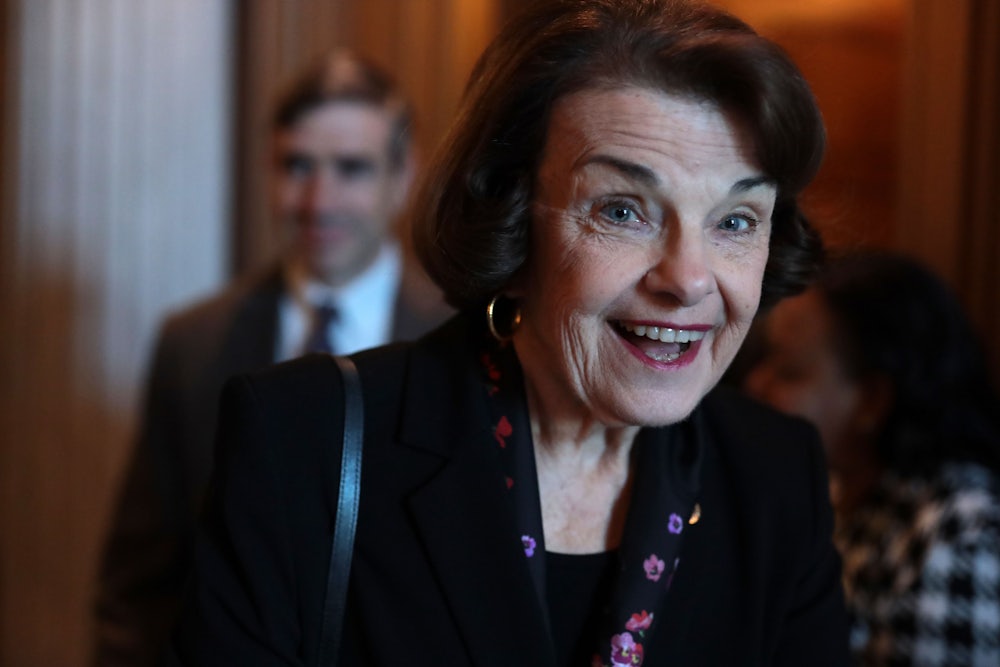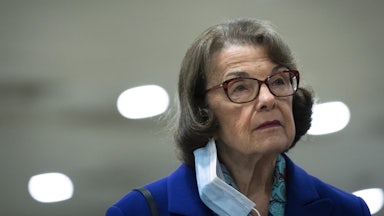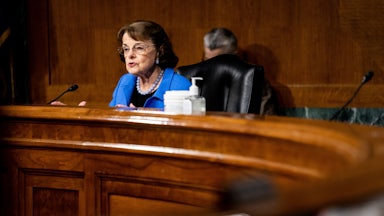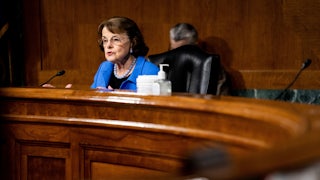One of President Biden’s biggest accomplishments is also one of his most mundane. Over the course of Biden’s first two years in office, he and Senate Democrats confirmed 100 federal judges, narrowly outstripping the number of appointments made by Donald Trump in the first half of his presidency. While that number significantly lags the total number of Trump’s appointments—more than 200, a gargantuan number that will ensure that Trump’s influence on the federal judiciary will last for a generation at least—it nevertheless is a staggering achievement. The Democrats managed to appoint dozens of jurists with a 50–50 Senate split and an evenly divided Judiciary Committee. With a new Senate majority in hand, that figure sits at a more than respectable 118 as of the end of March. Moreover, Biden’s appointments marked a correction from his Democratic predecessor: Barack Obama was slow to appoint judges and left—thanks in part to Republican obstructionism—more than 100 judicial vacancies. Democrats are finally taking the federal judiciary seriously.
Or at least, they were. The once-whirring judicial appointment machine has suddenly ground to a halt. Last month, Reuters reported that “only two candidates for lifetime positions as judges appeared before [the House Judiciary Committee] for its first judicial nominations hearing in five weeks, even though two of President Joe Biden’s other nominees were pending long enough to appear before it too.”
And Republicans are once again slowing the process, withholding “blue slips” that allow nominees to proceed to confirmation from the full Senate—a classic delaying tactic that allows any single senator to block a district court judicial nomination from their home state for any reason. Dick Durbin, the Judiciary Committee chair, has thus far done nothing to stop Republicans from using the opaque blue slip process to halt his party’s streak of successful nominations, despite the fact that he has unilateral power to do so. As a result, Biden’s nominees are stalled, leaving dozens of vacancies that could be filled by a Republican, should one win in 2024.
But there is another reason why the Judiciary Committee has been slow to move forward with new appointments in 2023. Dianne Feinstein, the 89-year-old senior senator from California, was reportedly hospitalized for shingles last month, forcing Democrats, who now hold a one-seat majority on the Judiciary Committee, to cancel multiple markup sessions. As Bloomberg reported recently, Feinstein’s absence—along with Durbin’s own after he caught Covid-19—meant that the Judiciary Committee “also missed three other opportunities to schedule those meetings in March. Delays have prevented 10 nominees, ripe for markups from getting votes.” Durbin himself acknowledged Feinstein’s absence has “of course” had ramifications on Democrats’ ability to appoint judges on Monday.
This is unacceptable. It is also, like Durbin’s continued inexplicable deference to blue slips, easily resolvable. It is time for Feinstein to resign her seat. In fact, it’s long past time for her to bring her career to a close. For the past several years, there have been escalating concerns that she is no longer up to the task of serving as a U.S. senator. In December 2020, Politico reported that there was “widespread” fear among Democrats that Feinstein was starting to slip—which is understandable, given her age. (Feinstein, who has served in the Senate since 1992, is the oldest sitting senator.) Aides and other senate staffers told Politico that the then-87-year-old frequently “gets confused by reporters’ questions, or will offer different answers to the same question depending on where or when she’s asked,” and appears “frail.”
Even though a divided Congress means that Democrats cannot reasonably be expected to accomplish very much in 2023 or 2024, Feinstein nevertheless occupies a crucial role in the chamber. The Democrats, who have 48 senators and three independents (Bernie Sanders, Angus King, and Kyrsten Sinema), have a narrow one-seat majority. Given the general lack of reliability of two of those senators—Sinema and West Virginia coal baron Joe Manchin—every seat is crucial. With her seniority entitling her to seats on both the Judiciary and Appropriations committees, she has an outsize importance within the party, as well as, unintentionally, the Senate itself: Her absence is keeping Democrats from getting things done. While she may return, the angst over her declining health will remain; it is not unreasonable to expect she will miss time in the future.
Feinstein has already announced her retirement from the Senate, but that will not go into effect until the end of her term in January 2025. That’s simply too much time to risk a limited-though-important Senate agenda. If Feinstein were to resign right this very moment, California Governor Gavin Newsom could appoint her replacement, just as he did when he made Alex Padilla the state’s junior senator in 2020 after Kamala Harris became vice president. This would undoubtedly be complicated politically: There are several California Democrats already vying to take her seat, including Adam Schiff and Katie Porter. Depending on who Newsom selects, he might be putting his thumb on the scale in a future Senate primary. Still, so be it: That’s Newsom’s decision to make, and it’s a challenge for the next would-be senator to overcome. The Democrats have more pressing problems, and Dianne Feinstein is proving to be an impediment to their resolution. They should thank her for her service to her country, usher her toward the door, and get back to work.










